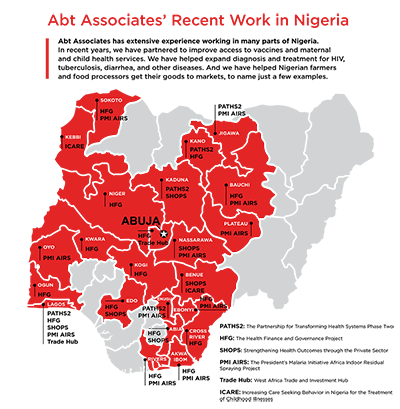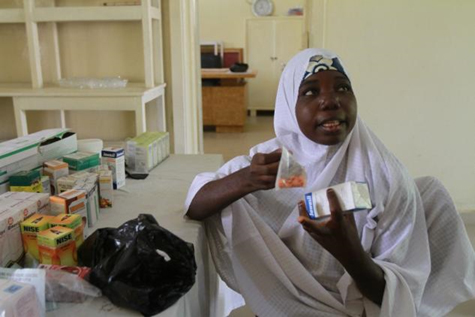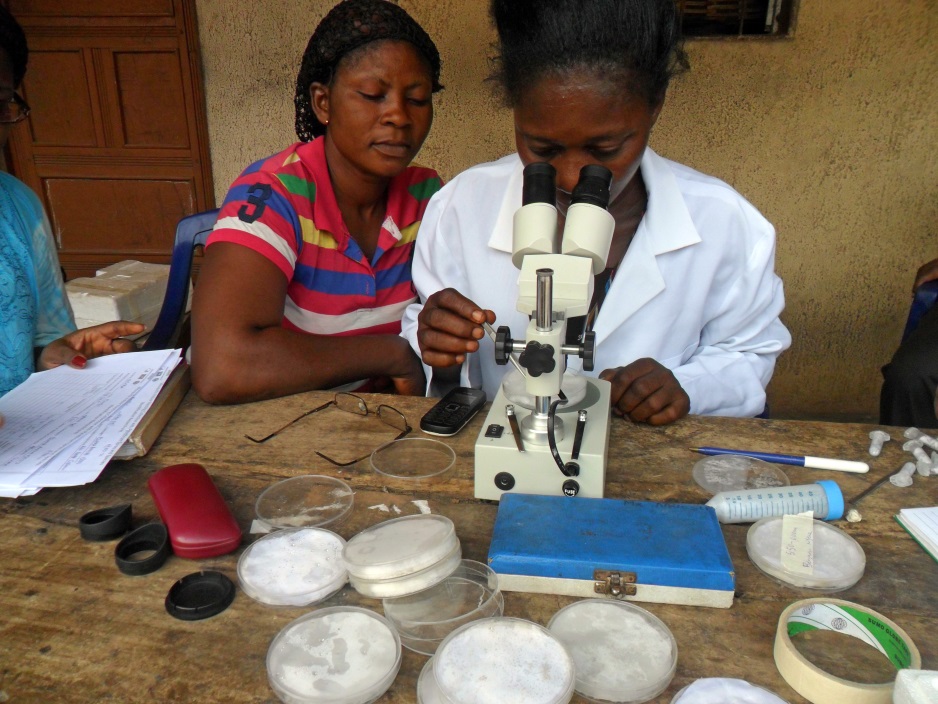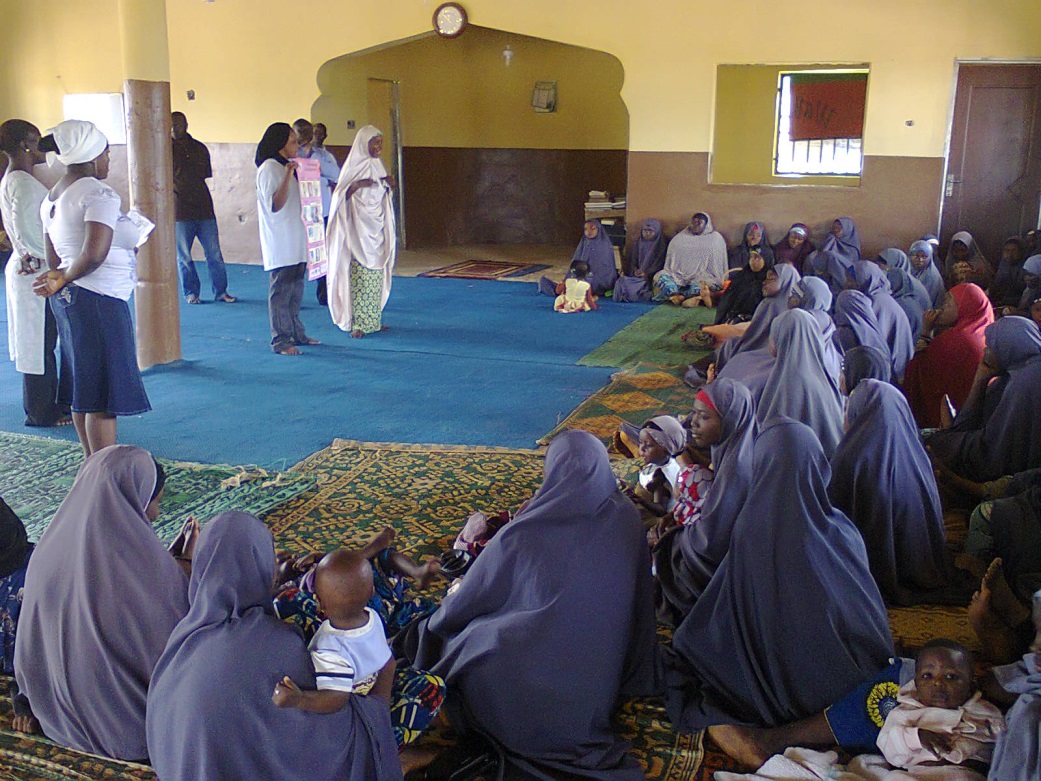Nigeria: Working to Improve Health, Governance, and Food Security

In the last decade, Abt Global has worked across Nigeria under ever-changing circumstances and sometimes difficult environments.
Abt has partnered to improve access to vaccines and maternal and child health services. We helped expand diagnosis and treatment for HIV, tuberculosis (TB), diarrhea, and other diseases. And we helped Nigerian farmers and food processors get their goods to markets, to name a few examples.
"Abt has been working across multiple sectors in Nigeria for years,” said Diana Silimperi, division vice president for International Health at Abt. “We are proud of the significant progress we have made in establishing sustainable health solutions for the population by engaging with federal, state and local governments as well as with communities throughout the country.”
Below is a sample of some of Abt’s work across Nigeria.
The Partnership for Transforming Health 2 (PATHS2)
PATHS2 facilitated the efficient and effective use of Nigeria’s resources to attain health-related Millennium Development Goals by improving the planning, financing, and delivery of sustainable and replicable pro-poor health services in five states beginning in 2008: Enugu, Jigawa, Kaduna, Kano, and Lagos. The program was extended in two states – Lagos and Enugu – through July 2016, principally working through public-private partnerships (PPPs) to strengthen service delivery.
Adama Usman, 23, a farmer with four children, shows off the more affordable medicine she bought during a visit to the Hadejia General Hospital in Jigawa state, Nigeria. The hospital was able to create a more sustainable supply of medicine with the help of the PATHS2.
Photo credit: PATHS2 PATHS2 has:
- Contributed to saving at least 123,500 lives, mainly children under five years of age;
- Introduced a revolving drug fund in 2,313 facilities, providing access to affordable medicines through the public system to an estimated 3 million people in 2015;
- Improved service provision and quality by renovating 254 health facilities;
- Established five comprehensive emergency obstetric care training centers;
- Trained 6,925 health workers to provide maternal, newborn, and child health services in public and private facilities; and
- Improved maternal, newborn, and child health (MNCH) knowledge, attitudes, and use among women in targeted areas through 9,732 behavior change communication events conducted by health workers and community volunteers. The events helped significantly increase the number of deliveries undertaken by a skilled birth attendant.
The Health Finance and Governance Project (HFG)
HFG has been working since 2013 to support the mobilization of resources from the public sector, private-for-profit sector, and NGOs to increase planning, allocation, tracking, and utilization of domestic funds to support Nigeria’s HIV and AIDS response.
HFG has partnered with the National Tuberculosis and Leprosy Control Board to scale up the use of smartphones in supportive supervision for tuberculosis (TB) patients.
And in 2015, HFG began working to assess the functionality of public health facilities to carry out key MNCH, family planning, and reproductive health interventions, across five states.
A PMI AIRS entomology technician identifies mosquitoes at the Enugu sentinel site in Nigeria. Entomological monitoring is a key part of the PMI AIRS Project because it ensures that indoor residual spraying remains effective in killing the mosquitoes that carry malaria.
Photo credit: Dogunro Festus, PMI AIRS
The President’s Malaria Initiative Africa Indoor Residual Spraying Project (PMI AIRS)
PMI AIRS introduced and piloted indoor residual spraying in two local government areas of Nassarawa State and assisted the Nigerian National Malaria Control Programme in establishing six mosquito entomological monitoring sites located across five geopolitical zones of the country. Entomological surveillance and investigations provide essential information on vector species, including their distribution, density, the ecology and behavior of mosquitoes, and their susceptibility and resistance to insecticides used for malaria control.
In 2016 the PMI AIRS Nigeria program is conducting entomological surveillance in six sentinel sites: Bauchi, Oyo, Ebonyi, Akwa Ibom, Nasarawa and Sokoto states, which were strategically selected to represent all ecological zones of the country.
The Strengthening Health Outcomes through the Private Sector (SHOPS) Project
SHOPS – USAID's flagship initiative in private sector health – trained doctors, nurses and midwives in the private provider network to do family planning counseling and service delivery, with an emphasis on long-acting reversible contraceptive methods and maternal and child health services. Parallel activities – demand creation conducted through trained birth attendants and volunteer community health promoters – helped educate women about family planning options. In the last quarter of 2015 alone, SHOPS mobilized more than 1,300 women to adopt a modern family planning method.
A private health facility nurse talks to women in a mosque about child spacing during a community mobilization meeting.
SHOPS Nigeria trained family planning community health promoters (CHPs) – volunteers who are respected in their communities – who used family planning counseling brochures and job aids to educate people in their communities and make referrals to trained private providers. CHPs also work directly with trained facilities to organize promotion events like community health days, which offer services to the community to attract new clients.
Photo credit: SHOPS The project assisted private providers in independent clinics to improve, expand, and sustain their practices by increasing access to loans and business training. The project structured a Development Credit Authority (DCA) loan guarantee focused on health providers. By the end of 2015, three banks had provided nearly 2,000 loans worth $13.9 million.
SHOPS also educated private providers – such as doctors and nurses, community pharmacists, and private drug shops, known as proprietary patent medicine vendors (PPMVs) – on the proper guidelines for treating uncomplicated childhood diarrhea through a combination of oral rehydration solution (ORS) and zinc, as recommended by the World Health Organization.
The SHOPS diarrhea management program operated in two target states: Nasarawa and Abia. In January 2016 the program in Benue state transitioned to The Bill & Melinda Gates Foundation funding under the iCARE Project, which Abt also is involved in. To date, more than 4,500 PPMVs have been trained on diarrhea management. SHOPS also worked with local zinc manufacturers and importers to ensure that both ORS and zinc products were available to caregivers. Major activities also included mass media campaigns with radio ads in local languages, outreach to more than 10,000 community-based organizations, and training of 300 zinc champions.
West Africa Trade and Investment Hub
Through its Financial Advisors Network, the Abt-managed USAID West Africa Trade and Investment Hub is developing in-country and regional capacity to generate sound, bankable proposals for business investment and loan approvals. In Nigeria, the Trade Hub works with 10 financial advisors—six in Lagos and four in Abuja—who have established $17 million in proposals with several large companies seeking expansions.
The Trade Hub is working with Nigerian grain traders and processors to plan and realize major investments, including a cornstarch processing plant to supply domestic food processors and export markets, upgraded rice mills, and a packaging facility for domestic, middle market urban consumers. The Trade Hub also gives logistics support to the Federated Foodstuff Dealers Association in Lagos.
In late 2015, the Hub collaborated with the Nigerian Institute of Animal Science to organize a B2B event in Lagos to promote investment in the country’s animal feed sector. “From Mash to Pellet: Adding Value in the Animal Feed Sector,” drew more than 100 stakeholders to discuss innovations in equipment, ingredients, and techniques that would catalyze investment in product and process upgrading. Improvements in the animal feed sector benefit those working in livestock as well as maize, millet, sorghum and rice, as all are processed as animal feed.
Increasing Care Seeking Behavior in Nigeria for the Treatment of Childhood Illnesses (ICARE)
Abt Global was subcontracted by Pact International in 2014 to provide technical assistance to the ICARE Project. Abt is responsible for ensuring the availability and supply of diarrhea treatments in the private sector and for training PPMVs and community pharmacists in diarrhea management.
